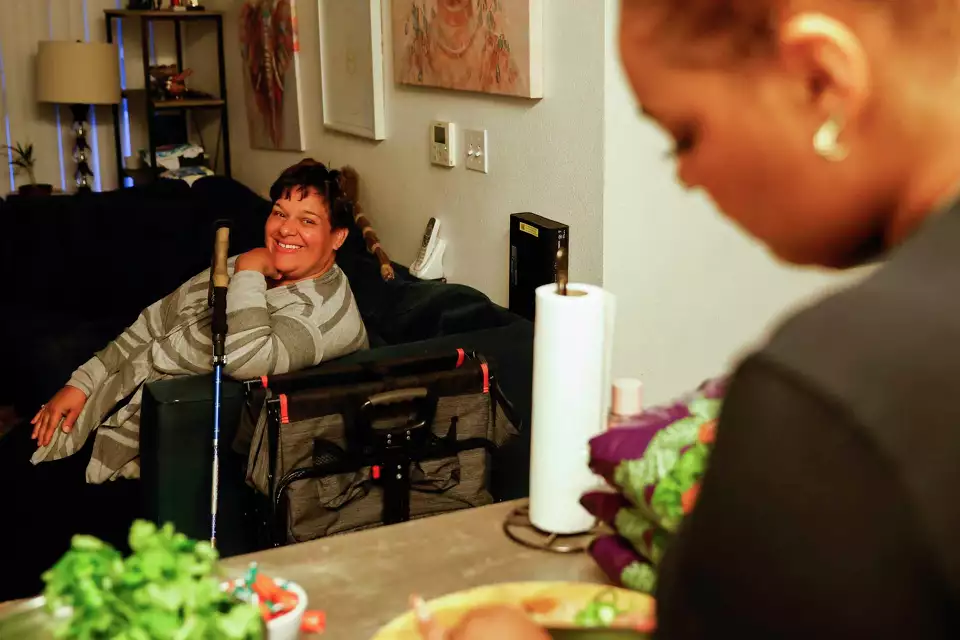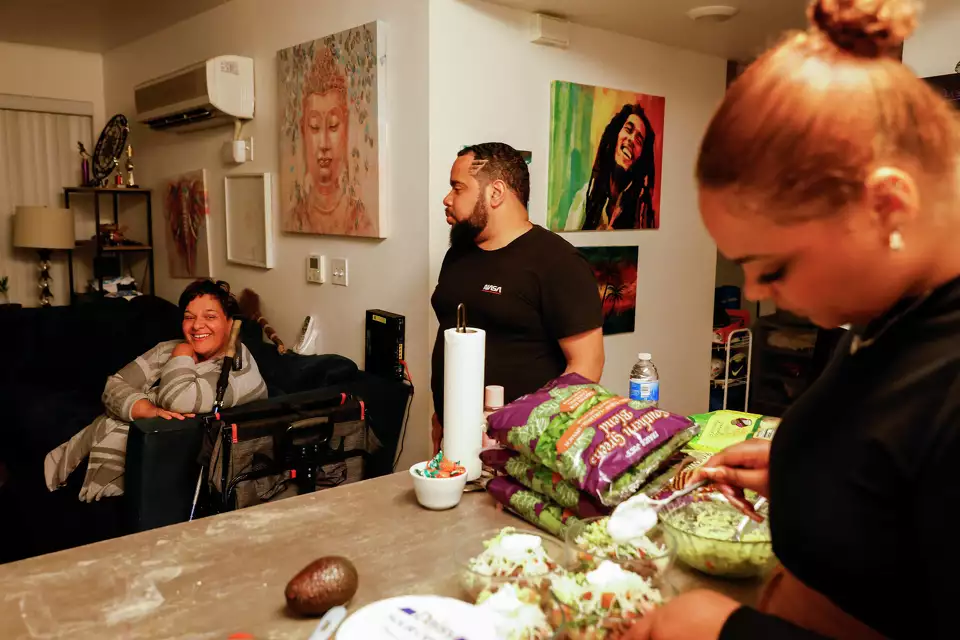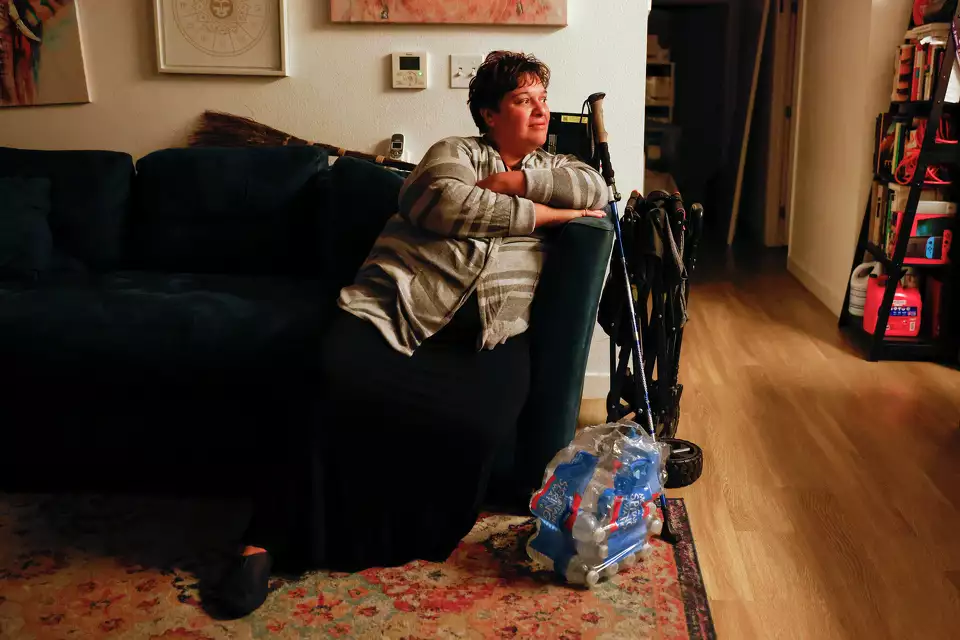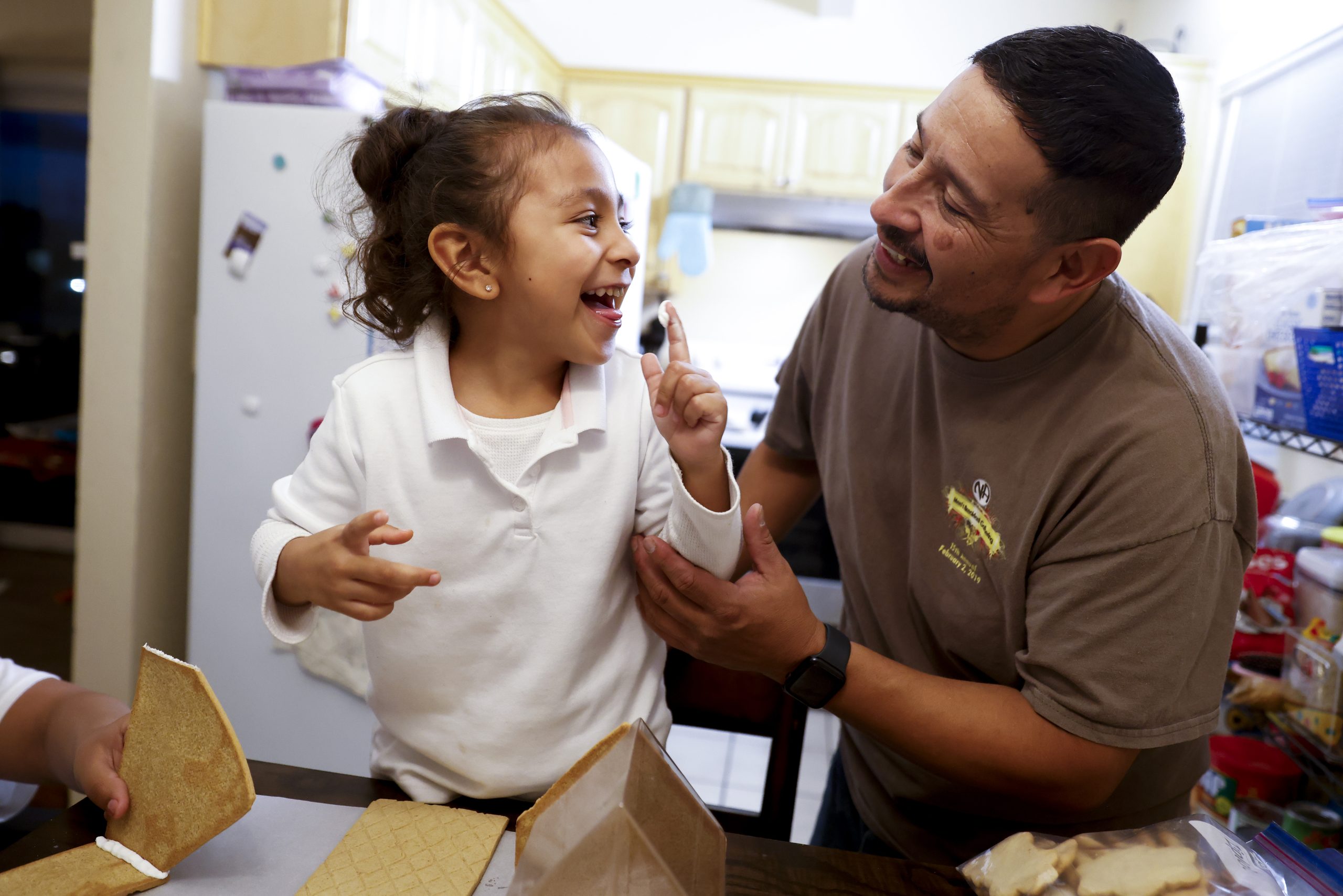Andrea Thomas-Paul has a large and far-flung family.
She has siblings, aunts, uncles and cousins in Sacramento, where she was born and raised. Four of her eight children, who range in age from 12 to 32, live with her in Oakland; the others are in San Francisco, Atlanta and Sacramento.
It’s an emotional safety net, but not a financial one. So last year, when Thomas-Paul, 51, fell nearly $5,000 behind on rent, she was in danger of losing the three-bedroom apartment she and her kids have occupied for the past five years.
“I started getting my payments the next month,” she said. “And my income dropped by 50%.”
Money had always been tight, she said during a recent interview. But conditions got worse after she took medical retirement in April 2022 from her job as a program technician for the California Department of Social Services.
“I started getting my payments the next month,” she said. “And my income dropped by 50%.”
Thomas-Paul had to give up her job because of a combination of health problems. She suffers from Crohn’s disease, as well as sciatica and lower back problems that were exacerbated by her desk job.
Working from home through the COVID-19 pandemic only made things worse.
“It seemed like when I was at work, I got up and moved around a lot more,” she said. “I at least had to go outside for a break or to go get lunch.
“But at home, I was just stuck to that computer.”

Thomas-Paul reached out for help to the Chronicle Season of Sharing Fund, which works year-round across the nine-county Bay Area to prevent homelessness and hunger among residents in need. She had a Zoom screening with caseworker Natalia Alvarez, who was able to confirm the details of her circumstances.
“I got in contact with her landlord, got a W-9, and went ahead and submitted her application,” Alvarez recalled in a phone interview. “It was a pretty quick turnaround.”


“That money helped pay the bills, but also it lessened my worry of being homeless,” she said. “Because I think that’s the biggest fear at the end of the day — the instability.”
Season of Sharing provided a cash payment that allowed Thomas-Paul to pay down almost all of her back rent. More importantly, it gave her some much-needed peace of mind.
“That money helped pay the bills, but also it lessened my worry of being homeless,” she said. “Because I think that’s the biggest fear at the end of the day — the instability.”
Thomas-Paul has been able to keep her rent current since then. But it’s a struggle. She and 21-year-old daughter Kennedy sometimes team up to do delivery for Uber Eats, which adds some spending money to the family budget.
“I have mobility issues, so I just do the driving, and she picks up and drops off. That brings in a little something to help us pay for little extra things we might need on a daily basis.”
In addition to Kennedy, Thomas-Paul has her two youngest children, ages 12 and 16, at home with her. Her son Dreyan, 19, was living there until he left for college at Oregon State University. At that point, Yasmine, 22 — a full-time design student at San Francisco State University — moved back in.
Thomas-Paul speaks of them all proudly, and she dotes on her three granddaughters, who live with their father in Sacramento but come down for an occasional stay. During a reporter’s visit, the youngest grandchild, 2-year-old True, played happily on the living room rug.
Thomas-Paul has an interest in herbal medicine, and she’s taking business classes online in hopes of turning that enthusiasm into an entrepreneurial project of some kind.
“My daughters are interested in helping, and I have some friends that are interested, too. It’s like a hobby or a passion that I have, and I hope to bring it to fruition.”
But there’s a persistent air of worry about her, an outgrowth of her close brush with homelessness, as well as concerns about the crime rate in Oakland.
Would she consider moving somewhere else?
“It’s quieter in Walnut Creek, but it’s too expensive. Even if I decided to move back to Sacramento, it’s expensive there, too. It’s expensive everywhere. The cost of living is just getting higher and higher.”
Reach Joshua Kosman: jkosman@sfchronicle.com

At Season of Sharing Fund, we believe that an unexpected financial crisis should never mean losing your home. Preventing homelessness isn’t just kind—it’s also the most effective way to keep our communities thriving. 100% of your donation keeps Bay Area residents housed, cared for and nourished.






